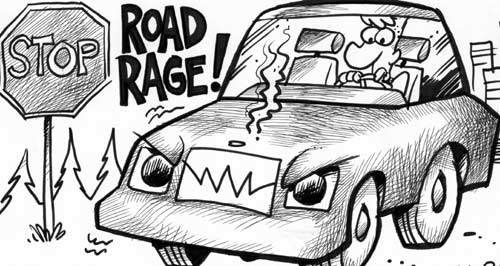我不需要赶在谁的前面,也不必担心落后于谁。就这样坐在谁的身边,感觉恰恰好。

By Jampa Williams
吴悠 选注
Perfectly civil people behind a wheel lose their ability to have compassion for others.[1] But oddly enough, when the barrier of the car is lifted, human beings prove they do love one another instinctively and compassionately.
Look no further than public transportation to see how this love and compassion are honored elsewhere on the road.
A woman boarding a bus, struggling to lift a baby carriage, is apt to[2] be quickly aided by another passenger.
Several times I’ve seen passengers give other passengers their bus passes when those without the fare were in dire straits.[3]
Bus riders, seeing people behind running for the bus as it pulls away, call out and ask the driver to wait, stop, or they’ll stand in the doorway and not move until a runner catches up.
Bus riders often put other people first, empathizing with the person running desperate to make it.[4]
The rest of us don’t mind the wait; we’ve all been that person running or the person standing in the doorway. We don’t heckle[5] or complain when the bus waits for a runner; we nod, relieved, silently cheering when the person bounds breathless up the bus steps.
Passengers queue up[6] at buses. We don’t push, yell, curse, or complain, even if – perhaps especially if – it is particularly cold, or wet, or miserable outside. We chat with one another, tell jokes, respect one another’s silence. We commiserate[7], compare notes, smile at one another’s children. Even when we annoy one another, we rise above our own irritation.[8]
But something happens when people drive; a sense of entitlement takes over as the driver talks on her cellphone and drives through the red light in a school zone.[9] A sense of self-importance takes hold of the driver as his BMW rushes to pass in the wrong lane, indifferent to the harm his actions may cause.
The immediate honking and cursing when a car doesn’t instantly surge forward at the changing of a light is unnecessary.[10] So, too, the bizarre[11] rage from drivers if a car slows to let a passenger cross in a crosswalk.
Are bus riders kinder people than car drivers? Or do they become just as impatient and self-centered when they themselves drive? What is at play[12] here? Is it the isolating nature of driving a car, where the illusion of sovereignty obtains?[13] Is it fear of some kind that pushes drivers to ignore laws and show contempt[14] for the safety and the well-being of others? And, if so, is this a fear of losing their place on the road – or a deeper fear of losing their place in the social order?
Our car culture has been destroying us since it began: destroying our environment, destroying our sense of community, splintering our cities, desecrating our countryside.[15] Riding the bus seems to restore something inside of us.
No matter how fast we drive, or how many places we go, or how important we pride ourselves on being, what we really need from one another is love and warmth. Without these, we become furious and lonely. Without these, we are cold and alone in a world that hears us no more than we hear the world.
The other morning I was cold, really cold, after waiting a long time for a bus. I sat down in a two-person seat by myself, relieved to be on the warm bus, but still shivering. A large man sat down beside me, and the sense of relief from his warmth was wonderful. I didn’t need to be ahead of anyone, and I wasn’t afraid of trailing[16] anyone. Being beside someone was grace, nothing more, nothing less.
Vocabulary
1. perfectly civil people behind a wheel: 坐在方向盘后面的绝对文明者,指生活在现代文明社会的驾车者,语带戏谑;compassion: 同情,怜悯。
2. be apt to: 易于……的。
3. bus pass: 公交票(卡);fare: 车费;in dire straits: 处于困境。
4. empathize with: 同情某人或某事,与……有共鸣;make it:〈口〉做成某事。
5. heckle: 责备,质问。
6. queue up: 排队。
7. commiserate: 同情,怜悯。
8. 即使我们彼此惹恼了对方,也能遏制自己的怒火。
9. entitlement: 应有的权利;zone: 地带,区域。
10. 一辆没能在变灯前冲过去的汽车司机马上按喇叭又骂人的行为完全是没必要的。
11. bizarre: 奇怪的。
12. at play: 起作用。
13. 因受一种(享有)主导权的错觉的驱使,孤立排他是开车(人)的天性?(难道驾车的本质是孤立排他的?驾车者普遍有能左右一切的错觉?obtain: 流行。)
14. contempt: 轻蔑。
15. splinter: 使分裂;desecrate: 毁坏。
16. trail: 落后于,追随。
(来源:英语学习杂志)